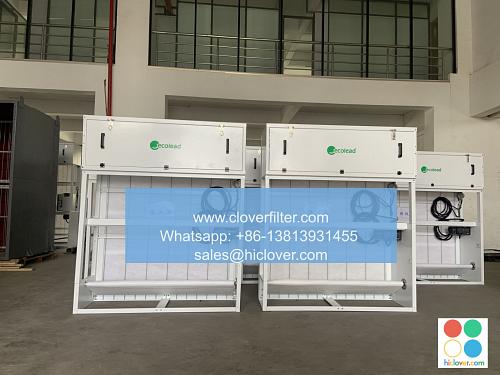Improving Patient Care through Advanced Air Filtration in Regina Medical Labs

The importance of air quality in healthcare settings, particularly in medical laboratories, cannot be overstated. In Regina, medical labs play a crucial role in providing accurate diagnoses and treatment plans for patients. However, these facilities can be susceptible to airborne contaminants, which can compromise patient care and safety. Advanced air filtration systems have emerged as a vital solution to mitigate these risks, and in this article, we will explore the benefits and applications of these systems in improving patient care.
Minimizing Infection Risks through HEPA Filtration and UV Technology
Medical labs in Regina handle a wide range of biological samples, including blood, tissue, and other potentially infectious materials. The risk of airborne transmission of pathogens is a significant concern, and advanced air filtration systems can help minimize this risk. High-Efficiency Particulate Air (HEPA) filters, which can capture particles as small as 0.3 microns, are particularly effective in removing airborne contaminants, including bacteria, viruses, and fungi. Additionally, UV technology can be integrated into these systems to provide an extra layer of protection against microbial contamination.
Air Purification and Ventilation in High-Risk Areas
Certain areas within medical labs, such as histopathology and microbiology departments, pose a higher risk of airborne contamination. Advanced air filtration systems can be tailored to meet the specific needs of these areas, ensuring that the air is purified and vented to prevent the spread of infectious agents. By maintaining optimal indoor air quality, these systems can help reduce the risk of laboratory-acquired infections and create a safer working environment for staff.
Enhancing Patient Safety and Laboratory Accreditation
The implementation of advanced air filtration systems in Regina medical labs can have a significant impact on patient safety and laboratory accreditation. By reducing the risk of airborne contamination, these systems can help prevent adverse events and improve patient outcomes. Furthermore, laboratories that invest in advanced air filtration systems can demonstrate their commitment to quality and safety, which can enhance their accreditation status and reputation.
Application Areas for Advanced Air Filtration in Medical Labs
Advanced air filtration systems can be applied in various areas within medical labs, including:
* Histopathology and cytology departments, where the risk of airborne contamination is high
* Microbiology laboratories, where the handling of infectious agents is routine
* Blood banks and transfusion medicine departments, where the risk of airborne contamination can compromise blood safety
* Pharmaceutical and compounding areas, where the quality of the air can impact the integrity of medications
Conclusion
In conclusion, advanced air filtration systems have the potential to revolutionize patient care in Regina medical labs. By minimizing infection risks, enhancing patient safety, and maintaining optimal indoor air quality, these systems can help create a safer and more effective healthcare environment. As the healthcare landscape continues to evolve, the importance of advanced air filtration systems will only continue to grow, and medical labs in Regina must invest in these technologies to stay at the forefront of patient care.

